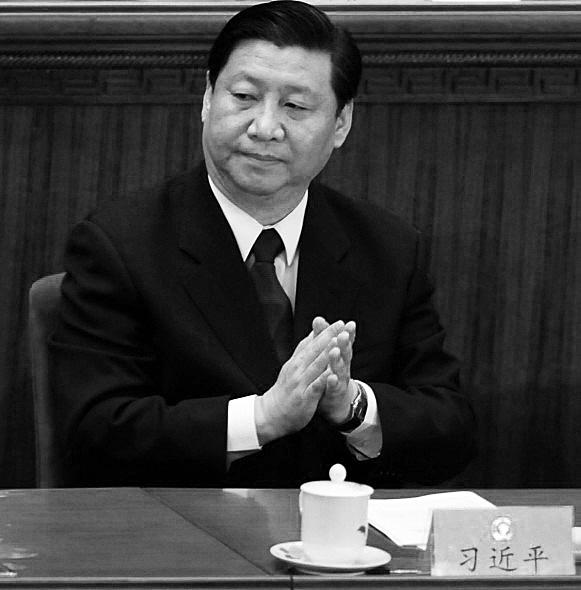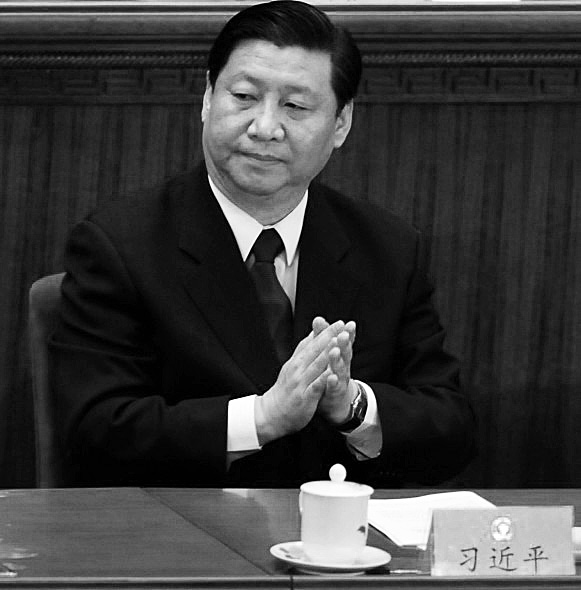People’s Republic of China Vice Chairman Xi Jinping will meet with President Obama at the White House on Tuesday, as U.S. leaders begin to get to know the man who is ticketed to lead the Chinese Communist Party (CCP) for the next decade.
The West often knows relatively little about the leaders of the CCP as they ascend to power, as their most revealing actions are typically performed well out of sight. The public personae of these leaders are carefully stage managed to support the regime’s propaganda.
In the case of Xi, he does not seem to be an advocate for any clear program for the CCP or China, and this apparently clean slate may be part of his attraction to leaders of a Party riven into competing factions. Xi’s record suggests qualities that don’t seem easily to fit together—he is an ideologist and a pragmatist, and gives off suggestions of anti-Americanism while having strong American connections.
Perhaps the clearest characteristic of Xi is his ambition, as described in a diplomatic cable written by Jon Huntsman, former American ambassador to China, and a failed Republican presidential candidate this year. The cable was written in late 2009 and released by WikiLeaks in 2010.
Based on interviews with people who knew Xi, the cable describes Xi as “exceptionally ambitious,” having sought a top leadership post in the Party from his youth. In the Cultural Revolution Xi became “redder than the red” to survive the political purges, and went to great lengths to join the Communist Party.
This overriding ambition may have been decisive in 2009, when Xi was picked to head up the “6521 Project,” a task force created to crack down on Falun Gong practitioners, Tibetans, and democracy activists, according to official documents and activist groups. Top leaders would have no doubt wanted Xi to become directly implicated in the campaign as a condition of his elevation to the pinnacle of the Party—that way, he would not be able to hold others accountable for their directing similar campaigns.
Xi believes that rule by a “committed Communist Party leadership is the key to enduring social stability and national strength,” according to the WikiLeaks cable. As the son of a first-generation revolutionary leader in the Communist Party, Xi sees himself as a “legitimate heir” to the Party’s throne. He believes he deserves to rule China, according to the cable.
Xi is currently the vice chairman of the Central Military Commission, the head of the Central Party School, and vice chairman of the People’s Republic of China. At the 18th Party Congress later this year, he will probably become the Secretary General of the Chinese Communist Party. His formal state and military titles will later be elevated in accordance with Party ritual and custom.
As head of the Party School, Xi is a kind of ideological taskmaster for the regime. He regularly gives speeches exhorting young communist recruits to study the theories of Karl Marx; on most occasions he refers to the ideological contributions of former Party leaders to bolster his point. His speeches are meant to glorify the CCP and its rule of China, which is invariably described as “magnificent and glorious.”
In a recent speech, he urges the study of history as crucial for new Party members. That history, of course, is the regime sanctioned version, and largely omits the political campaigns and famine that killed as many 80 million people under the CCP’s rule.
But despite the emphasis on the importance of history, as head of the Party School Xi does not let the facts of history get in the way of a good lecture. When speaking at the 60th Anniversary Symposium of the Korean War, for example, Xi blames the United States for starting the Korean War: “The [U.S.] troops ignored the Chinese government’s multiple warnings ... launched air raids to bomb our northeastern cities and villages, and brought the war to the territory of the newly established People’s Republic of China.”
This hint of anti-Americanism has been echoed by Xi when speaking on contemporary matters. His name came to the attention of Western commentators in February 2009, when he said to a group of gathered overseas Chinese in Mexico, “There are some foreigners with full bellies and nothing better to do, who point their fingers at us and tell us what to do. First, China does not export revolution; second, does not export poverty and hunger; third, does not make trouble for you. What else is there to say?”
His remarks were circulated widely in the United States. The idea has taken root that Xi may be one who argues back when confronted by U.S. officials with, for example, criticism of the regime’s human rights abuses.
Despite his apparently earnest ideological convictions, Xi is seen as a pragmatist. He is said to support private enterprise, having been Party chief in Zhejiang Province from 2002 to 2007, which is known for having an active business and finance sector supporting small- and medium-sized enterprises. Xi’s daughter attends Harvard University.
Xi Jinping’s second marriage is to Chinese singer Peng Liyuan, whose fortunes are a barometer of her husband’s political career. Peng is the director of the song and dance troupe of the General Political Department of the People’s Liberation Army. Her military rank is major general.
Just after Xi was elevated to the Politburo Standing Committee and appointed to a raft of internal Party “leading small groups” in 2007, for example, Peng appeared prominently on the Renowned Chinese Award program, an official ceremony for popular stars with a strong official imprimatur. (Savvy political observers noticed that Song Zuying, the concubine of previous regime leader Jiang Zemin and former headline singer, began to recede from public view as Peng soared.)
What Xi ultimately brings to the leadership of the Chinese Communist Party is not exactly clear. He is often referred to as a “compromise” candidate—a compromise between the opposing factions of former leader Jiang Zemin and incumbent Hu Jintao. He will need to find solutions that satisfy the various interest groups in and around the Party. This may become increasingly difficult as the Party’s economic growth model of massive investment, particularly in infrastructure, and deeply subsidized exports comes under further pressure.
Networks of CCP officials, often through state resource and market monopolies, have dominated and manipulated China’s economy, leading to a distorted profile of income distribution and myriad other problems, experts say. Continued economic growth for China and a genuine increase in domestic consumption as a share of gross domestic product will require policy that dismantles these entrenched interest groups. Xi, however, was chosen because he would maintain the status quo.






